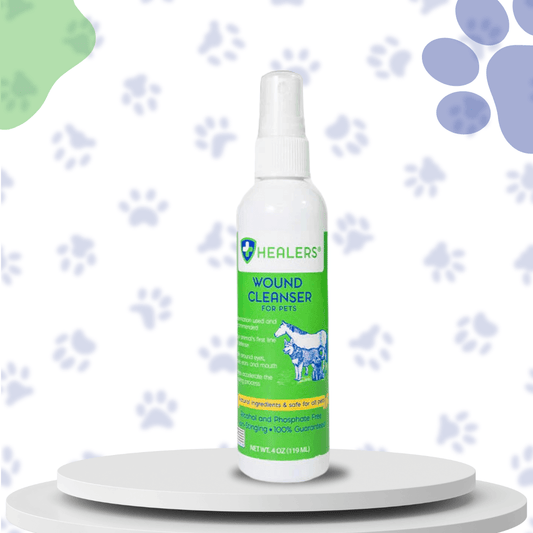Can Dogs Swim In a Saltwater Pool: What You Need To Know

Photo by Murilo Viviani on Unsplash
Can Dogs Swim In a Saltwater Pool: What You Need To Know
Pools are lots of fun for the whole family, and even furry friends like the family dog can enjoy diving in the water and paddling around with the kids. But is it actually safe to let your dog swim about in a saltwater pool? Are there any risks for pool and pup owners to take into account? And what can be done to protect dogs in and around saltwater pools? Find out in this guide.
Understanding Saltwater Pools
Before we look at the potential effects and risks of saltwater pools for dogs, it’s important to understand what these pools are and how they work.
So, to put it simply, saltwater pools are pools that make use of saltwater chlorine generators to keep the water clean. They're just as safe and sanitary as chlorinated pools, and many people prefer the uniquely fresh and gentle feel of the water on their skin. They also have other benefits, like lower maintenance and no strong chlorine smell coming from the water. How do they work? Well, first of all, salt has to be added directly to the pool's water. The water then passes through the generator, which uses a process called electrolysis to chlorinate the water, killing bacteria and keeping the whole pool clean, safe, and sanitary for the whole family to use.
Can Salt Water Hurt Dogs?
Yes and no. On the face of it, there's no harm in letting dogs swim around in salt water, and it doesn't pose any notable risks to dogs in small quantities and with proper supervision. However, dogs, like small children, don't necessarily understand that salt water isn't safe to drink. And if they swallow too much, that can do them harm.
In fact, in the worst cases, salty water can even be fatal to dogs! Even if they consume small amounts, there's a risk of them suffering from dehydration, sickness, and diarrhea. In worse cases, dogs that swallow too much may require urgent, life-saving veterinary care to prevent death.
Saltwater Pools vs. Chlorinated Pools-Which is Better For Dogs to
Swim in?
So, if saltwater pools can be risky for dogs, you might think that chlorinate pools would be safer. But is pool chlorine safe for dogs? Not necessarily. In fact, the truth of the matter is that chlorinated pools can be just as dangerous for dogs. They may not have the same high quantities of salt, but they do contain lots of chlorine, which can be poisonous. Chlorine in chlorinated swimming pools can irritate your dog’s skin and make their eyes red and sore, too. Plus, if the dog swallows lots of the water, they can suffer from a range of problems, like sickness and even death in the very worst cases. So, in the end, it’s definitely unwise to assume that a chlorine pool will be better for your pup than a salty one. Overall, many vets would instead say that saltwater pools are slightly safer. Both types have their risks, but saltwater pools are at least more natural and gentler to a dog’s skin and eyes.
The Difference Between Saltwater Pools and the Ocean
Many people assume that saltwater pools are just like swimming in the ocean, but that's actually quite far from the truth. In reality, saltwater pools have about 10% the salt levels of the ocean, so they're much less salty and offer very different swimming experiences. You usually need goggles to prevent your eyes from stinging in the ocean, for example, which isn’t the case in a salty pool.

Protect your pets paws from hot sand.
Tips for Keeping Your Dog Safe in a Saltwater Pool
As we can see, saltwater swimming pools are relatively safe for dogs when compared to chlorine pools or other water sources, like the ocean. However, they still pose some real risks that owners need to take into account and deal with. Here are some handy tips and tricks you can use to keep your canine companion safe in a salty pool.
Drinking saltwater
As explained above, one of the big risks for dogs in saltwater pools is the possibility of them swallowing lots of the water and then getting sick from it. Owners should therefore supervise their dogs closely while using the pool and do all they can to discourage their dogs from drinking the water.
By providing plenty of fresh water for your dog outside and around the pool, it should be less thirsty and less likely to swallow the saltwater. You can also try making a noise or saying "No" when you see your dog trying to drink from the pool. This can teach them that it's wrong and dangerous. Finally, don’t let them stay in too long, as they’ll accidentally swallow some water simply while swimming about.
Drying up
Saltwater also has a habit of irritating a dog's skin and making it dry out. This is because the salt draws water out of the skin. So, when your dog gets out of the pool and sits at the side, they may start to get a little itchy and irritated.
You can resolve this by rinsing your dog off with fresh water from a hose or shower once they leave the pool and then drying them off quickly or giving them a shady spot to cool down in between each swimming session.

No prior washing
Finally, it's best to not wash dogs before going into the pool. Why? Well, dogs produce their own natural oils to protect their fur and skin. If you wash away those oils before they get in the pool, the salt may do even more damage to their skin and irritate it further.
All in all, saltwater pools are pretty safe for dogs, as long as owners keep them under close supervision and take the necessary steps to stay safe. Remember to always rinse your dog off after each swim and never let them drink the water.
Article submitted by guest blogger: Sophia Foster : Sophia is an experienced exterior designer with over 5 years of expertise in crafting stunning outdoor spaces. Her creative vision and attention to detail have transformed numerous environments into captivating landscapes.
Currently, she contributes her expertise to the innovative team at Designs by
PoolAid, where her passion for design continues to shape inspiring outdoor
experiences.





